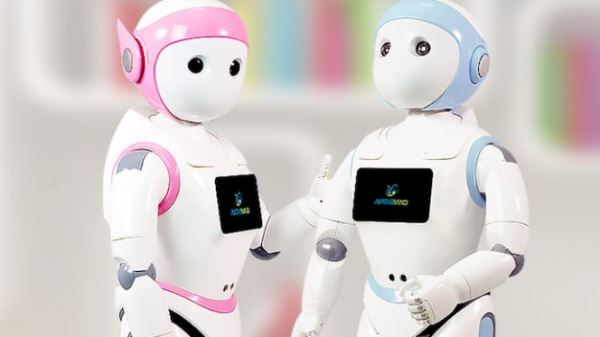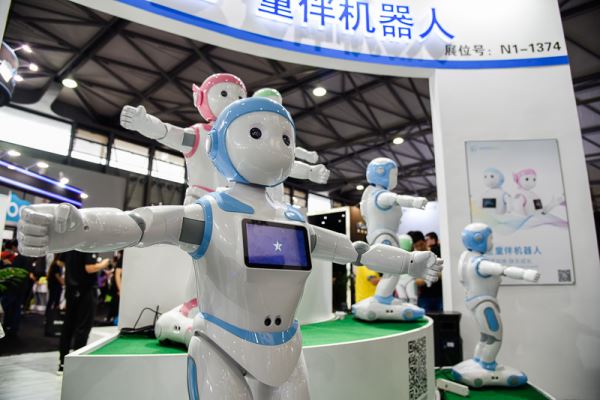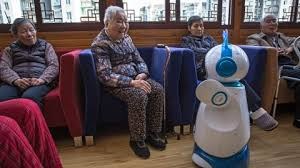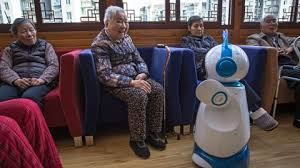The world’s population is aging rapidly.
The elderly need to be cared for, but aged care services are struggling to meet the growing demand.
Aged care providers are now looking to intelligent service robots to play a key role in looking after the needs of seniors.
Care robots could soon be common place in Japan’s nursing homes and hospitals to fill an expected shortfall of 370,000 caregivers by 2025.
The Japanese government is pushing for increased acceptance of the new technology as it predicts robots will care for 80 percent of its elderly by 2020.
Now China, with its rapidly aging population, is also turning to robots to serve its elderly.
Chinese robotics companies that previously had a sole focus on producing industrial robots, are recognising the increasing need to develop care bots.
At the 2018 World Robot Conference held in Beijing recently, AvatarMind, a Nanjing-based robotics company, unveiled a voice-controlled robot called iPal, designed primarily to assist seniors.
The humanoid iPal robot performed a song from a classic Chinese opera and entertained crowds with its sweet voice and exaggerated gestures.
Helping to ease loneliness
The robot reacts to touch and voice turning its head towards elderly users and offering simple conversations. Besides singing opera, it can give weather reports and remind users to take their medicine.
Wang Wenping, AvatarMind’s marketing director says iPal can help to ease loneliness for seniors while ensuring their safety.
The robot can send a live feed of its elderly users to their children or relatives. Through motion detection and facial recognition, it can also send alerts if users are injured or suspect someone is breaking into their home.
"China's population is aging rapidly. The elderly need to be cared for, and yet their children are often busy with work," Wang told China Daily. "We see a big market potential."
According to the Office of the National Working Commission on Aging, the number of people aged 60 or above reached 241 million in China last year, accounting for 17.3 percent of the total population.
This number is expected to peak at 487 million around 2050, making up 34.9 percent of the total population.
Mass production for domestic and overseas markets
However, China’s senior care services are insufficient to cover the growing demand.
Wang said AvatarMind plans to put iPal into mass production for both domestic and overseas markets.
It is one of many Chinese robotics companies that plan to tap into the senior care market.
Zhongrui Funing Robotics Co Ltd, based in Shenyang, capital of Northeast China's Liaoning province, also unveiled a model of senior care robot at the conference.
At 1.5m tall, the robot named P-Care can roam around a house and keep an eye on the whereabouts of its users. Its appearance is based on a well-known Chinese cartoon character, the Monkey King.
It can chat, sing, dance, and remind the elderly to exercise regularly. With strong arms and dexterous hands, it can serve food and drinks and help the seniors stand up and walk.
P-Care will be able to monitor the elderly's health conditions by measuring their blood pressure, body temperature, and heart rate, the company says.
Great challenges
Zhongrui Funing Robotics is now working to promote the robot in Chinese nursing institutions and hospitals.
But companies concede they still face great challenges in this market.
"Robots are only beginning to enter China's senior care market. It takes a lot of time and money to improve our products and attract new customers," said Wang Wenping. "We need to make progress in combining robotics with artificial intelligence and big data to make our robots smarter."
But Wang added that even the smartest robots cannot fully replace humans in taking care of the elderly.
"Robots can help entertain and look after the elderly who live alone," Wang said, "But care from family is what really matters."
Credit: China Daily


